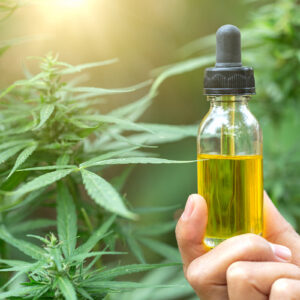Introduction
Pregnancy is a significant and transformative time in a woman’s life. During this period, women are often cautious about what they consume, as it can impact both their health and the well-being of their developing fetus. The use of CBD (cannabidiol) products has gained popularity for its potential health benefits, but there is growing concern and debate about whether it is safe to use CBD during pregnancy. In this article, we will explore the existing research and considerations surrounding CBD use during pregnancy, helping expectant mothers make informed decisions about their health and their baby’s.

Understanding CBD and Its Source
CBD, or cannabidiol, is a natural compound found in the cannabis plant. It is one of over 100 cannabinoids present in cannabis. Unlike its well-known counterpart THC (tetrahydrocannabinol), CBD does not produce the psychoactive effects or “high” associated with marijuana use. CBD is typically extracted from industrial hemp plants, which contain minimal levels of THC (usually less than 0.3%).
The Appeal of CBD During Pregnancy
Pregnancy often brings about various physical and emotional challenges. Many women turn to alternative therapies to alleviate symptoms such as nausea, anxiety, pain, and sleep disturbances. CBD has gained attention for its potential to provide relief in these areas without the psychoactive effects of THC. Some women consider using CBD products to manage these discomforts during pregnancy.
The Lack of Comprehensive Research
One of the primary challenges in determining the safety of CBD during pregnancy is the scarcity of comprehensive scientific studies on the topic. The legal and ethical complexities surrounding cannabis research have limited the ability to conduct controlled trials with pregnant women. As a result, most of the available information is anecdotal or derived from animal studies.
Potential Risks of Using CBD During Pregnancy
- Lack of Regulation: The CBD industry is largely unregulated, which means that the quality and safety of CBD products can vary widely. Pregnant women should exercise caution when choosing a CBD product and opt for reputable brands that provide third-party lab testing to ensure product purity and accurate labeling.
- Placental Transfer: While research on humans is limited, studies on animals suggest that CBD can cross the placenta and reach the developing fetus. This raises concerns about the potential impact of CBD on fetal development, particularly in high doses.
- Interaction with Medications: Some pregnant women may be taking medications for preexisting conditions. CBD can interact with certain medications, potentially affecting their efficacy. It is crucial for expectant mothers to consult with their healthcare provider before using CBD to ensure there are no harmful interactions.
- Potential for Adverse Effects: Although CBD is generally considered well-tolerated, some individuals may experience side effects, including dizziness, dry mouth, changes in appetite, and diarrhea. These side effects could be particularly uncomfortable for pregnant women already experiencing pregnancy-related symptoms.
- Lack of Long-term Safety Data: The long-term effects of CBD use during pregnancy on the child’s development, both physical and cognitive, are not well-understood due to the absence of comprehensive research in this area.

Factors to Consider
When contemplating the use of CBD during pregnancy, expectant mothers should consider the following factors:
- Consult with a Healthcare Provider: Before using any CBD product during pregnancy, it is essential to consult with a healthcare provider who can provide personalized guidance based on your medical history and specific circumstances.
- Product Quality: Choose high-quality CBD products from reputable brands that provide transparent information about their sourcing, production methods, and third-party testing.
- Dosage: If a healthcare provider recommends CBD, they will likely prescribe the lowest effective dose to minimize potential risks.
- Alternatives: Explore alternative therapies and lifestyle modifications that may alleviate pregnancy-related symptoms, such as morning sickness, anxiety, and pain.
Considerations for CBD Use during Pregnancy
1. Potential Benefits
While there are potential risks associated with CBD use during pregnancy, some women may weigh these against the perceived benefits. Some women report that CBD has helped them manage symptoms such as anxiety, nausea, and sleep disturbances. However, it is essential to remember that individual responses to CBD can vary, and what works for one person may not work for another.
2. Alternative Therapies
Pregnant women have several alternative therapies at their disposal to manage pregnancy-related symptoms. These may include lifestyle modifications, dietary changes, acupuncture, meditation, and prenatal yoga. Exploring these options with the guidance of a healthcare provider can be a safer and more well-established approach.
3. Legal Status
The legality of CBD varies from one place to another. Some regions have strict regulations regarding CBD, while others have more permissive laws. Pregnant women should be aware of the legal status of CBD in their area and ensure that they are compliant with local regulations.
4. Personal Risk Assessment
Every pregnancy is unique, and so are the circumstances surrounding it. Some women may have preexisting medical conditions or severe symptoms that make them more inclined to consider CBD as a potential option. Others may opt for a more conservative approach. A thorough risk assessment, conducted with a healthcare provider, can help expectant mothers make informed decisions based on their individual situations.
Conclusion
The use of CBD during pregnancy remains a topic of debate and concern due to the lack of comprehensive research on its safety and potential risks. Pregnant women should prioritize their health and the health of their developing fetus by approaching CBD use cautiously, if at all. Consulting with a healthcare provider is crucial to make informed decisions about the use of CBD during pregnancy. Until more research is conducted to establish clear guidelines, it is advisable to err on the side of caution and explore alternative approaches to manage pregnancy-related symptoms. Ultimately, the well-being of both the mother and the unborn child should be the top priority during this transformative period in a woman’s life.





